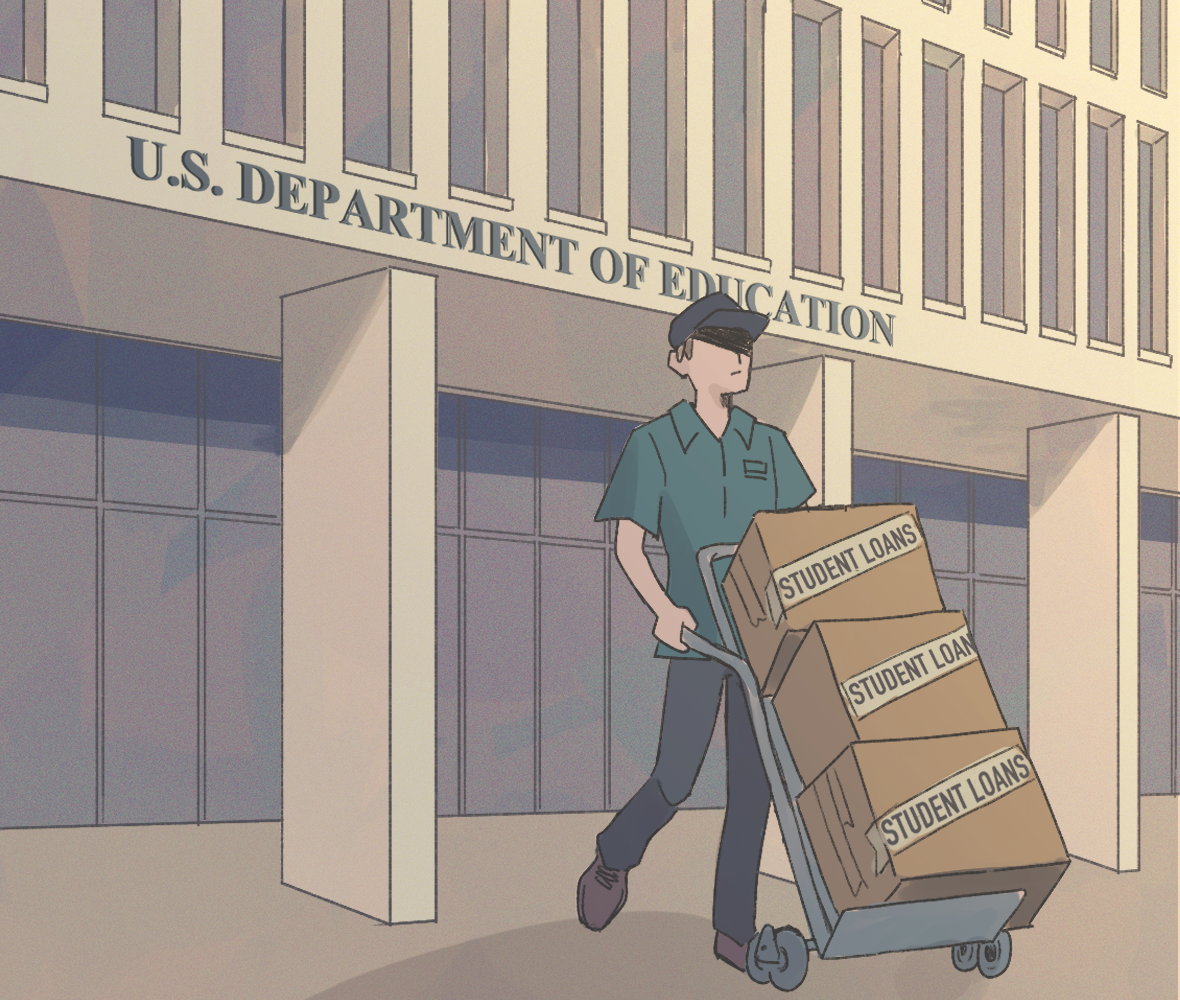The U.S. Department of Education reopened applications for income-driven repayment plans for federal student loans on March 26 following the initial closure of the repayment plans in February, according to the department’s website.
Income-driven repayment plans, also known as IDR plans, offer lower monthly payments for borrowers based on income and family size, according to the department website. In August 2023, the Biden administration introduced the Saving on a Valuable Education plan, or the SAVE plan, to reduce monthly payments and offer a quicker pathway to loan forgiveness compared to other IDR plans, according to a news release.
More than 13 million borrowers are enrolled in an IDR plan, and more than 42 million Americans hold federal student loan debt, according to The Institute for College Access & Success.
On Feb. 18, the Eighth Circuit Court of Appeals expanded a July 2024 injunction to block the entirety of the SAVE plan and portions of other IDR plans, causing the department to temporarily close all IDR plans, according to a department news release.
Although IDR plan applications — with the exception of SAVE — reopened on March 26, the department is not yet processing applications because loan servicers are updating their systems to comply with the court order, according to the news release.
Borrowers currently enrolled in the SAVE plan are in “general forbearance” until servicers can calculate individual monthly payment amounts, which means borrowers currently do not have to make student loan payments, the loans will not accrue interest and borrowers will not make progress toward loan forgiveness during this time, according to the news release.
Texas One Stop does “not anticipate significant disruptions to the disbursement of Federal Pell Grants, Federal Direct Student Loans or Federal PLUS Loans,” said Jennifer Love, associate vice provost for financial aid and Texas One Stop, in an email statement.
President Donald Trump announced on March 21 that student loans would be relocated from the Department of Education to the Small Business Administration, one day after he called for the closure of the Department of Education. However, the future of federal student loans remains uncertain, said Betsy Mayotte, president and founder of the Institute of Student Loan Advisors, a nonprofit offering free student loan advice for borrowers.
Some question the president’s authority to rehouse student loan programs, Mayotte said. Even if the move happened, Mayotte said the change for borrowers would be limited because the terms and conditions of the loans are written in federal law and regulations.
“The vast majority of the everyday functionality of the loans like responding to borrowers, billing and accepting payments and processing deferments, that’s all done by servicers and vendors,” Mayotte said. “I fully expect that if the loans were to move, those servicers and vendors would remain the same. Borrowers wouldn’t see a big change in the day-to-day.”
However, the mass layoffs at the Department of Education, which cut the department’s workforce in half, can impact borrowers’ access to loan assistance, Mayotte said. The Associated Press reported that hundreds of users experienced outages in the Free Application for Federal Student Aid, more commonly known as FAFSA, on March 12, one day after the department fired 300 employees. The Small Business Administration also announced a 43% workforce reduction on March 21.
Love and Mayotte said they recommend borrowers stay informed and check the status of their loans. Mayotte said borrowers should always keep records of their loans, which they can view in the National Student Loan Database.
“Don’t make any panic decisions based on a headline,” Mayotte said. “Any changes that may or may not happen are not going to happen immediately — there are no deadlines right now.”














